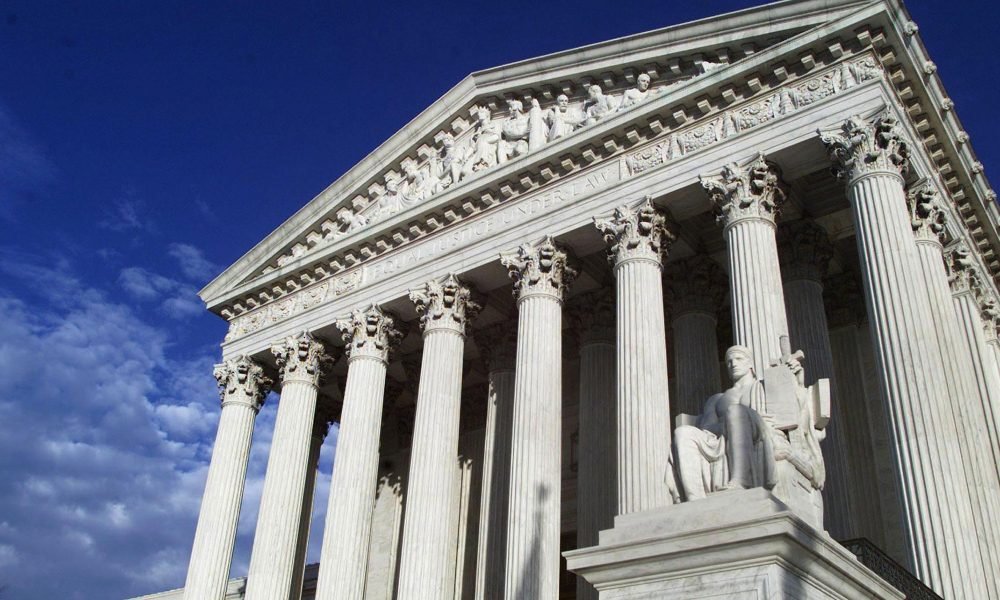
5 of the Weirdest Supreme Court Decisions in America

Later on in your study of law, you will realize that not all problems in life can be solved before a court. When people rely on the laws of the land to solve some of their problems, such as telling the difference between a fruit of the vegetable, they can come up with some of the most ridiculous rulings ever. Here are some cringe-worthy rulings that you should know of:
Tomatoes Are Vegetables

Tomatoes are a vegetable?
While they go better on a salad rather than on a smoothie, the tomato has been botanically classified as a fruit. A fruit is a plant’s ripened ovary, so the tomato is a fruit in the same way that an apple, banana or mango is. Unfortunately, the Supreme Court disagreed with this when it ruled a tax case in Nix v. Hedden.
In the 1800s, the Port of New York was taxing tomatoes as vegetables. The Nix family, who were importing tomatoes, knew that they were not fruits so they sued to recover all the taxes that they had paid. Unfortunately, the Court sided with Edward Hedden, the Collector of the Port of New York. While insisting that tomatoes are indeed vegetables, the Supreme Court held that the law has to be applied by its spirit rather than by the letter.
Ninety-Five Barrels of Apple Cider Vinegar Got Sued, and Actually Lost

Apparently, apple cider is a valid defendant.
You might have learned about locus standi or legal personality in your first few years in law school, but this was not always the case. Back then, anything on earth can be sued and in US v. Ninety-Five Barrels Alleged Apple Cider Vinegar, something you regularly find in the grocery got sued.
Here, Douglas Packing Company’s secret to producing their apple cider vinegar was dehydrating fresh apples, before rehydrating them again with pure water, thus producing the vinegar. So, you might ask what seems to be the problem with that? The Supreme Court head that apple cider vinegar can mislead consumers since the label on the product said that the vinegar was made from “selected” apples.
You Can Block Junk Mail from Reaching You
Before the 1970s, businesses used to send promotional material, including pornographic materials, to individual households. As expected, a lot of citizens did not find this funny, so they challenged the practice until it reached the highest court of the land.
The Court ruled that people have the right to choose the kind of materials that they want to enter their homes. The court even went further when it ruled that it follows that people have the legal right to reject any material at all, regardless of the reason. A man’s house is his castle, so an advertiser’s right of free speech ends where your own borders begin. While the advertiser can say whatever they want, this is not the case in somebody else’s property.
Satirists Are Not Slanderers

Jerry Falwell opening a Republican Party fundraiser with a joke
In Hustler Magazine v. Falwell, Hustler published a parody ad featuring Jerry Falwell talking about losing his virginity. In such parody, he lost it to his mother and was the last man in town to sleep with her. While the right of free speech is constitutionally protected, it virtually ends when you start to offend someone. In this case, Falwell got offended so he sued Hustler magazine for defamation. While he won before the lower court, the Supreme Court did not favor his position.
Ultimately, it was ruled that Satirists do not really defame people. This case was such a big win for comedians across the country, that this inspired a movie which stars Edward Norton entitled “The People vs. Larry Flynt” where a lot of the court transcripts were reproduced in verbatim.
You Do Not Own the Sky
Skyscrapers were starting to grow like mushrooms in the early 1900s. However, residents of a district in Boston were not happy about their town turning into a concrete jungle, so they passed an ordinance which prohibited the construction of buildings that were above 100 feet tall.
This was the subject in Welch v. Swasey where the petitioner owned property in the residential section and wanted to build a 125-foot tower. Of course, the city told him to go to hell but he insisted as he claims to own the entire airspace on top of his property. Sadly, the Court ruled in favor of Boston. While they agreed that the statute was discriminatory and pretty useless, they had no business in a jurisdiction where no harm was apparently done.
While the law is made for public order, it is not meant to take the place of human problems which other areas of discipline could, such as botany or engineering. Do you know of any other ridiculous Supreme Court rulings? Share them with us in the comments below
More in Legal Advice
-
A Step-By-Step Guide to Becoming a Real Estate Lawyer
A real estate lawyer specializes in legal matters related to property, from transactions to disputes. They ensure legality in real estate...
December 3, 2023 -
What Is Asylum & How Does It Work?
At its core, asylum is a protection granted to foreign nationals in a country because they have suffered persecution or have...
November 26, 2023 -
6 Reasons Why Sentencing Is Any Judge’s Toughest Assignment
When you picture a judge, you might imagine a stern figure in black robes, gavel in hand, delivering verdicts with unwavering...
November 14, 2023 -
Carrie Underwood Sued for NBC Sunday Night Football’s “Game On”
It is almost ritualistic. As the weekend winds down and Sunday evening approaches, millions across America gear up for a night...
November 12, 2023 -
Why Lawyers’ Productivity Has Increased in Modern Times
Remember the old days when your image of a lawyer might have been drawn straight out of an episode of “Matlock”...
November 5, 2023 -
Paying Down Debts Using Debt Relief Tactics
Debt is like that lingering headache that never seems to go away, no matter how much aspirin you pop. But there...
October 29, 2023 -
Pro Se: Your Right to Represent Yourself WITHOUT an Attorney
The legal system is complex and so, more often than not, people hire a professional attorney to navigate the legal system....
October 21, 2023 -
The Craziest, Most Expensive Hollywood Divorces of All Time
Hollywood is the land of glitz, glamour, and romance – until it is not. Over the years, we have seen our...
October 13, 2023 -
How Was Life as a Lawyer in Ancient Rome?
The Late Roman Republic was a period chock-full of political drama, rampant corruption, and the rise and fall of powerful figures....
October 8, 2023














